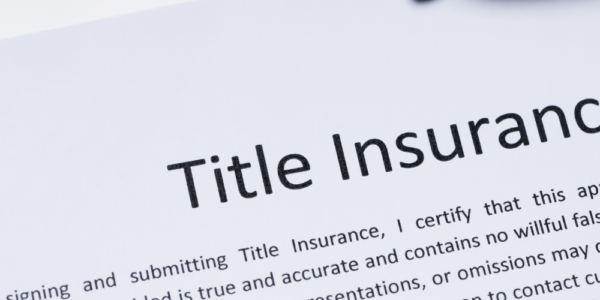
How Does Title Insurance Work?
Purchasing a new home is an exciting time; finding the right house can feel like a treasure hunt, with the keys to the perfect house as the reward at the end. But the home-buying process can also feel tedious too. There are many hoops to jump through (and papers to sign!) before you get those keys in hand. Because of the monetary, time and emotional investments involved with purchasing a house, it’s important to do what you can to protect yourself from any problems arising. One way to do so is with title insurance. How does title insurance work?
As a buyer, a home is probably the largest financial purchase you will ever make. You want to be sure that the legal transfer of ownership goes off without a hitch, otherwise your expenses could balloon from legal fees, not to mention the extra time and stress that may be necessary to correct title issues. As part of the process to close, a title search will be run to check for any barriers to a smooth title transfer. For example, a title search may identify liens, back taxes, or additional owners that may not have been disclosed by the seller. Once identified, the seller will need to rectify any issues before the title can be transferred to the seller, and the contract closed.
But what happens if a title search comes back clear, and then a defect with the title arises after closing? What if there is an undisclosed easement or lien on the property? A filing error on the title? What if someone with an inheritance claim comes forward to challenge ownership? This is where title insurance comes in to save the day!
Title insurance saves you money spent out of pocket on legal fees, filings and any other expenses that may be incurred to correct the title defect. Unlike other types of insurance, title insurance is a one-time premium. Title insurance is issued through a title insurance company, rather than a general insurance company that provides home or auto coverage. There may be exceptions listed on the policy, but these will be unique to each property and home. These exceptions will be included in the policy prior to purchase, so pay special attention to make sure that you understand the policy limitations. If a defect is found in the title and is not listed as an exception, then title insurance kicks in to cover the cost of fixing it.
If you are financing the purchase of your home, lenders will require title insurance to protect their financial investment (as well as yours). As the seller, you are not usually required to purchase title insurance, but many sellers in Florida pay for the buyer’s premium as a gesture of good faith.
Do you have questions about how title insurance can protect you in the home-buying process? Are you in the market for a title insurance company,and want to know what sets Clear Title above the rest? Call one of our offices today to schedule an appointment with our professionals.
Pace Office: (850) 994-3838
Pensacola Office: (850) 361-4029
Pine Forest Office: (850) 202-8518


